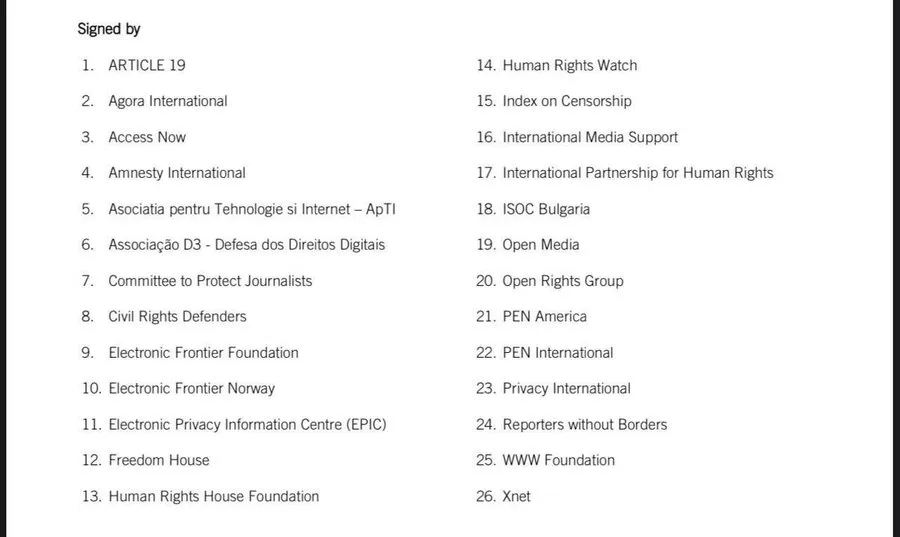Florian Philippot, the leader of France’s Les Patriotes party, posted on X today his condemnation of France’s arrest of Pavel Durov, the founder of Telegram: “France offers its tyrannical face to the world. We must free ourselves from these lunatics.” The head of Russia’s Safe Internet League, Ekaterina Mizulina, posted on Telegram today: “It is obvious that the arrest is an attack on TON [a blockchain-based platform originally developed by Telegram’s creators] in which major Russian companies have invested. That is, in part, a continuation of the U.S. sanctions policy.” She believes “that the Americans are behind the situation as a whole,” arguing that Telegram, which has over 900 million monthly active users worldwide, is a thorn in their side in terms of information distribution.
The Deputy Speaker of the Russian State Duma Vladislav Davankov posted on Telegram: “Hardly anyone else has done more for the development of digital services in Russia and the world. I have urged Russian Foreign Minister Sergey Lavrov to appeal to the French authorities to release Pavel Durov from custody. His arrest could be politically motivated and used to gain access to personal information of Telegram users. We cannot allow this.” He said that, while illicit activity can be found on all messaging platforms, “nobody arrests or jails their owners. And it shouldn’t happen this time.”
The spokeswoman for Russia’s Foreign Ministry Maria Zakharova, posted on Telegram August 24 her challenge to Human Rights Watch, Amnesty International and other NGOs, as to whether they will pressure France over the arrest of Durov. She reminded them that they, along with 26 other NGOs, had leveled harsh criticism of Moscow in 2018 when it tried to regulate Telegram’s operations, even though Russia never arrested Durov. Then, as RT recounted, those NGOs demanded that Moscow “stop creating obstacles to Telegram’s operations,” but guarantee the rights of users to publish and anonymously consume information online. They called upon the UN, the Council of Europe, the Organization for Security and Cooperation in Europe (OSCE), the EU, the U.S. and other governments to resist Russia’s move and protect the fundamental rights of freedom of expression and privacy.
Finally, after reminding the NGOs that Moscow had legal issues with Telegram over the technical parameters of its encryption system, as did many other countries, she posed: “Meanwhile, Durov remained free all this time, continuing to develop Telegram.” She asked her readers: “What do you think, will they [the NGOs] appeal to Paris this time and demand Durov’s release, or will they swallow their tongues?”




